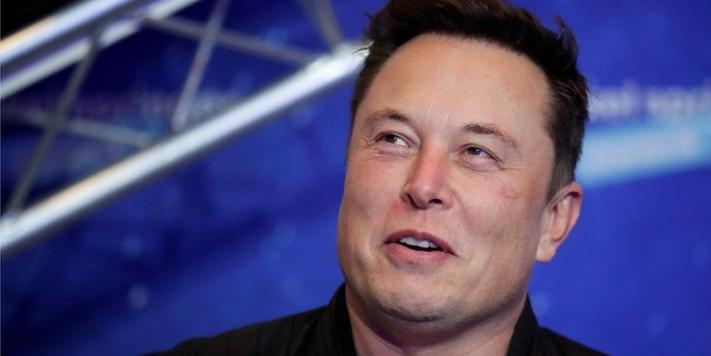According to CNN, BBC, Reuters and other foreign media reports, on the 25th local time, Musk and Twitter board of directors reached a final acquisition agreement. Under the deal, Musk will buy Twitter for $54.20 per share, totaling about $44 billion. The deal has the potential to expand the business empire of the world's richest man, putting him at the helm of one of the world's most influential social networks. However, for the Twitter platform and users, it is not certain whether it is a blessing or a curse.

Musk (Source: Reuters)
What does Musk mean for Twitter?
Musk is a high-profile Twitter user and a controversial user. He has more than 83 million followers on the platform, and he himself has a controversial history on the platform.
Over the years, he has shared everything on the platform, from memes to discussing his own company, from bashing politicians to spreading misleading statements about the COVID-19 pandemic, from promoting cryptocurrencies to making offensive remarks about the transgender community.
In 2018, U.S. financial regulators accused him of misleading Tesla investors in tweets. In 2019, he was controversial and subjected to defamation lawsuits after he called a diver involved in saving Thai male students a "pedophile" on the platform.
Although controversial, Musk has never stayed away from his keyboard.
What changes might Musk make to Twitter?
Musk said in a statement on the 25th that he hopes to enhance the product by adding new features, suggesting that Twitter's algorithm be open source, combat spam bots, and authenticate everyone, so that Twitter can become better than ever.
Still, some industry experts worry that Musk wants to achieve free speech on Twitter, which could mean some of the platform's efforts to curb hate speech, misinformation, harassment and other harmful content could be affected.
On the financial side, Twitter's main business model is advertising-based, but Musk wants to change that. He believes he can increase revenue, provide a better experience for paying customers, and maybe even an ad-free version of Twitter. However, in an environment where all major social networks are free to use, this can be difficult to achieve.
Musk also loves cryptocurrencies, will he use the platform to encourage users to use volatile, unprotected currencies like Bitcoin?
It's hard to summarize twitter users' overall views on the acquisition, with many welcoming Musk's acquisition, but also threatening to leave.
Twitter ushered in a new era of uncertainty
In the days after Musk's first bid, many people who followed the company wondered if Twitter would try to find another buyer, especially after the company implemented a poison pill program that made it harder for Musk to buy the company without approval.
The acquisition, which is expected to close later this year, will be delisted and privatized as part of the acquisition. Musk said it would give him the freedom to make the changes he wanted to the company, and he didn't care about the economics of the acquisition.
In reality, though, he will take over a company with fluctuating financial performance. Despite its enormous influence, Twitter has rarely been profitable, and user growth is slowing, especially in the U.S. Founded in 2004, the company has revenues of $5 billion and approximately 217 million daily active users worldwide as of 2021.
Parag Agravar (Source: Twitter)
It's unclear who will lead the company forward. Twitter is currently led by Parag Agrawal, who took over last November from co-founder and former boss Jack Dorsey. But Musk said in an offer letter to take Twitter: "I don't have confidence in management."
Agravar told employees on the 25th that Twitter's future is uncertain. "Once the deal is completed, we don't know where the platform will go," he said.
However, the deal could end Twitter's nearly decade of chaos as a public company. During this time, Twitter has gone through multiple CEO changes, struggled with activist investors, struggled to grow and successfully monetized its influential user base.
There will be no regulatory hurdles to the deal?
Musk locked up Twitter at an alarming rate. In early April, he became the largest shareholder of the company with a 9.2% stake.
He was subsequently invited to join Twitter's board, but rejected the offer before unexpectedly launching an acquisition of the company on April 14.
Twitter tried to block his takeover, threatening to dilute the shares of anyone who bought more than 15 percent of the company's shares. However, the company's stance shifted after Musk disclosed more financial details about his proposed acquisition. He has secured $25.5 billion in financing for the deal and will hold a $21 billion stake in the company.
After the deal was announced, Twitter's shares rose nearly 6 percent, hovering around $51.84, slightly below the takeover offer. The deal is currently awaiting approval from shareholders and regulators. Analysts say no regulatory hurdles are expected.
The White House declined to comment on Musk's acquisition of Twitter, but said President Joe Biden has always been very concerned about the power of social media platforms.
Will Trump return to Twitter?
There are also questions about whether Musk could restore the accounts of former U.S. President Donald Trump, a move that could have a major impact on the upcoming 2024 U.S. presidential election.
Trump said on April 25 that he would officially join his own social media platform," TRUTH Social, over the next seven days as planned. Trump said: "I hope Musk will buy Twitter because he will improve on it, he is a good guy, but I will continue to stay at TRUTH." ”
Upstream News Compiled by Ruochen Yang